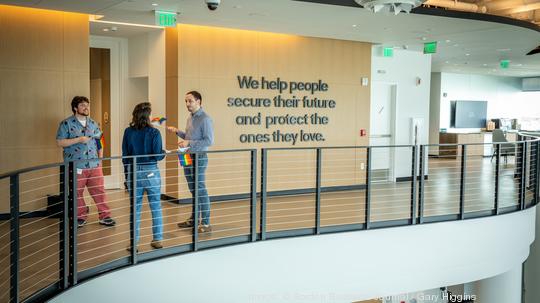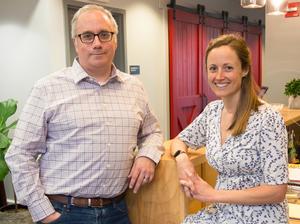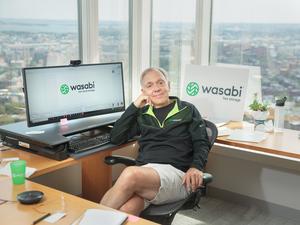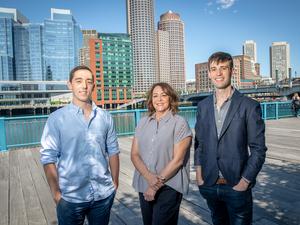
Springfield-based MassMutual began noticing an uptick in entrepreneurship in the financial services industry around five years ago. Local accelerators, companies and colleges were turning out more fintech startups—but not all of them were staying in Massachusetts, said Michael Fanning, head of MassMutual U.S.
“You look at many of the founders of the more successful companies, [or] any of the companies, and it was like, they went to school at MIT, or Harvard or BU or BC or somewhere. And oh, by the way, they left. They left Massachusetts and went to Silicon Valley,” Fanning told BostInno.
One year ago, a group of Massachusetts organizations, including MassMutual, Vestigo Ventures and Brandeis University, launched the Mass Fintech Hub to boost the state’s financial services technology ecosystem. The hub is celebrating one year of programming and its first 30 members and is setting its sights on increasing that number more than sixfold.
Sign up for The Beat, BostInno’s free daily innovation newsletter from BostInno reporter Hannah Green. See past examples here.
Building a national fintech center
The public-private partnership was born from the state’s FinTech Working Group and is co-led by Fanning and Massachusetts Housing and Economic Development Secretary Mike Kennealy.
Massachusetts already had much of what it needed to become the nation’s fintech center, including talent from local colleges, support from accelerators and the existing presence of financial services companies, Fanning said. But there wasn’t a collaborative network among these groups.
He added that venture capital firms tended to be more “conservative” in Massachusetts compared to California, and some startups left to get easier terms.
“We thought we could create an ecosystem that one: Would attract people from other parts of the country to come here; and two: The people that were here, rather than having to leave, would keep their businesses here,” Fanning said.
For MassMutual and other companies, this would be a huge benefit for investing or acquiring startups or their talent, Fanning said.
Celebrating wins, setting new goals
One of the Mass Fintech Hub’s ongoing priorities is the student bootcamp series it created, Fanning said. At these events they bring in mentors to help entrepreneurial students learn about fintech and how to get involved.
A spokesperson for the hub said about 110 students from Massachusetts colleges and graduates from Boston public high schools have participated in the bootcamps. The hub is planning to host a bootcamp and mentoring program for students in late October, as well as a career fair at Boston FinTech Week on Sept. 27-29.
Fanning said the Mass Fintech Hub also created a series of events that connect startups with angel investors.
“(It’s) easy to walk down the street in Silicon Valley and have a cup of coffee with a VC or an angel investor. We’ve tried to make that process easier for the startups,” Fanning said.
Mass Fintech Hub will also host an angel investment forum during FinTech Week.
Speaking of FinTech Week, Fanning said the hub has also really helped “institutionalize” the yearly event by hosting a series of programs throughout the three days. FinTech Week was created and run by FinTech Sandbox.
“They continue to be the sponsor of it, but we’ve now surrounded that in a way that I think is going to be a lot more sustainable,” Fanning said.
Connecting with people during the pandemic over the last year has been their greatest challenge, Fanning said. The Mass Fintech Hub has around 30 paying members, and the organization’s biggest goal is reaching 200 members in the next year to become self-sustaining. Right now, Fanning said they already have at least that many inquiries in their pipeline about membership.
The hub will also be watching to see how funding numbers change in the state. Fanning said Massachusetts is among the top five states for funding fintech startups. He wants to see it become number one or two.
“We’d like to be recognized as, if I’m a fintech and I’m really serious, I’m coming to Boston because that’s where I’m going to have the highest likelihood of getting from being a startup to being venture-backed, to going public or whatever their aspirations might be,” Fanning said.








